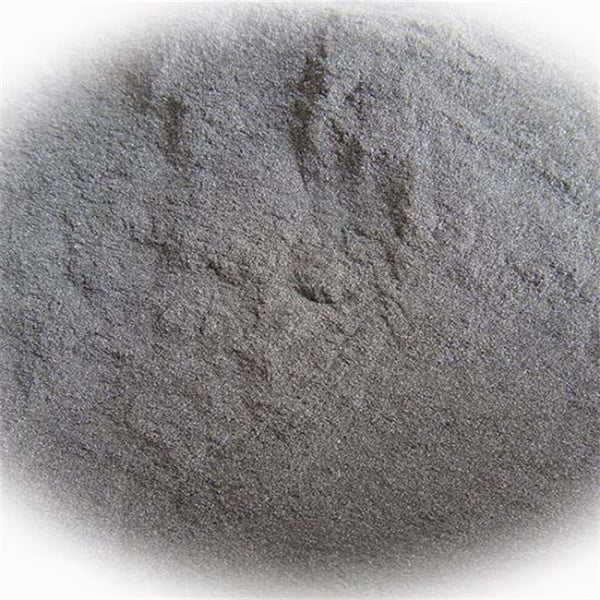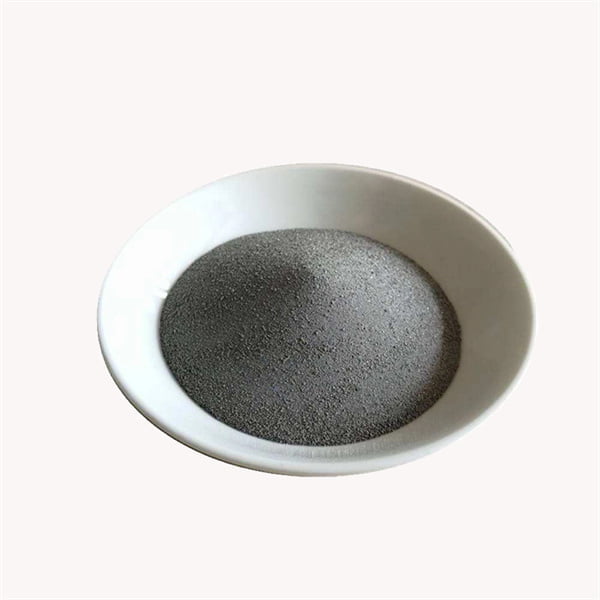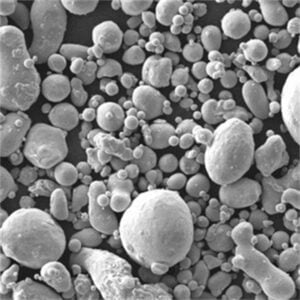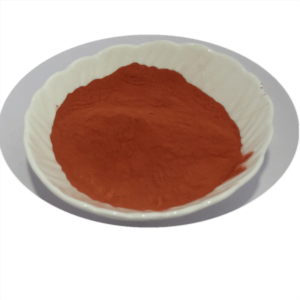BAg-36 powder, also known as silver brazing alloy powder, is a superhero in the metal joining world. Imagine needing to connect two pieces of metal permanently, but with a strong, high-temperature bond. That’s where BAg-36 comes in, wielding its superpowers of excellent flow, superior strength, and resistance to heat. But before we delve into its amazing world, let’s take a step back and understand what brazing is all about.
The Art of Metal Matchmaking
Think of brazing as the sophisticated older sibling of soldering. While soldering uses a lower melting point metal to join pieces, brazing uses a higher melting point alloy like BAg-36. This creates a stronger, more durable bond that can withstand significantly higher temperatures. It’s like using superglue compared to a heavy-duty industrial adhesive.
BAg-36: Unveiling the Metallic Marvel
Now, let’s get to know BAg-36 powder a little better. It’s a silver-based brazing alloy, meaning silver is the main component. But it’s not a solo act! BAg-36 usually contains other elements like copper, phosphorus, and sometimes cadmium, each playing a specific role in its remarkable properties.
Here’s a table summarizing the key details of BAg-36 powder:
| Key Details | Description |
|---|---|
| Material | Silver-based brazing alloy |
| Form | Powder |
| Color | Silvery white |
| Melting Point | Around 620°C (1148°F) |
| Applications | Brazing of various metals |
| Brazing Process | Flame, induction, furnace brazing |

the Properties of BAg-36 power
BAg-36 isn’t just a pretty face (well, maybe a silvery white face). It boasts a range of properties that make it a go-to choice for various brazing applications. Let’s explore some of its key characteristics:
- Excellent Flow: Imagine pouring honey – that’s how BAg-36 powder flows during brazing. This exceptional fluidity allows it to fill tight gaps and create strong capillary action, ensuring a seamless bond.
- Superior Strength: Don’t be fooled by its smooth flow. BAg-36 joints can withstand significant stress and pressure, making them ideal for applications requiring high mechanical strength. Think of it as the invisible handshake holding your world together.
- High-Temperature Resistance: BAg-36 can handle the heat! Its high melting point allows it to create joints that can perform well at elevated temperatures, making it perfect for applications like heat exchangers and exhaust systems.
- Oxidation Resistance: Oxidation, the nemesis of all metals, is no match for BAg-36. It forms a protective layer that prevents corrosion, ensuring the longevity of your brazed joints.
Exploring Different Metal Powder Models
The world of brazing powders is vast, but BAg-36 isn’t the only hero on the scene. Here’s a closer look at 10 other popular metal powder models, each with its own strengths and specialties:
1. BNi-2: This nickel-based brazing powder shines when it comes to joining dissimilar metals, particularly those with high thermal expansion coefficients. Think of it as the diplomatic brazing alloy, bridging the gap between different metals.
2. AWS A5.8 BCuP-3: This copper-phosphorus brazing powder is a cost-effective option for general-purpose brazing. It offers good flow and strength, making it a popular choice for applications where BAg-36 might be overkill.
3. AWS A5.8 BNi-1: Another nickel-based contender, BNi-1 excels at brazing high-temperature alloys like Inconel and Hastelloy. It’s the muscle car of brazing powders, perfect for high-performance applications.
4. AWS A5.8 BCup-5: This copper-phosphorus brazing powder offers superior brazing characteristics compared to BCuP-3. It boasts higher strength and better flow, making it ideal for applications requiring a bit more oomph.
5. AgPd: This silver-palladium brazing powder takes heat resistance to a whole new level. It can withstand temperatures exceeding 800°C (1472°F), making it the go-to choice for brazing in extreme
the Applications of BAg-36 Powder
BAg-36 powder isn’t just a champion in the lab; it’s a workhorse in various industries. Here’s a glimpse into some of the applications where BAg-36 shines:
- HVAC (Heating, Ventilation, and Air Conditioning): BAg-36 brazing plays a crucial role in joining copper pipes and fittings used in refrigeration and air conditioning systems. Its excellent flow and high-temperature resistance ensure leak-proof connections that can handle fluctuations in temperature.
- Automotive: From radiators and condensers to exhaust manifolds and catalytic converters, BAg-36 brazing is a key player in the automotive industry. Its superior strength and resistance to vibration make it ideal for creating strong, durable joints in these demanding applications.
- Appliance Manufacturing: BAg-36 brazing helps assemble various components in appliances like refrigerators, ovens, and washing machines. Its ability to join dissimilar metals like copper and steel makes it a versatile choice for manufacturers.
- Plumbing: BAg-33 brazing is a popular choice for joining copper pipes in plumbing systems. Its excellent flow and capillary action ensure tight connections that can withstand high water pressure.
- Medical Devices: When it comes to delicate medical equipment, BAg-36 brazing offers a reliable solution. Its biocompatibility and ability to create strong, leak-proof joints make it suitable for applications like catheters and heat exchangers used in medical devices.
Specifications, Sizes, and Grades
Now that we’ve explored the applications, let’s delve into the nitty-gritty details of BAg-36 powder. Here’s a table outlining its specifications, sizes, and grades:
| Specification | Description |
|---|---|
| Material | Silver (49%), Copper (30%), Phosphorus (6.8%) |
| Melting Point | 620°C (1148°F) |
| Brazing Temperature Range | 650°C – 750°C (1202°F – 1382°F) |
| Available Sizes | Typically ranges from 10 microns to 180 microns (mesh sizes 100 – 80) |
| Grades | AMS 4784, AWS A5.8 BAg-36 |
The Price is Right: Exploring Suppliers and Costs
The cost of BAg-36 powder can vary depending on several factors, including:
- Quantity: Larger quantities typically come at a lower price per unit.
- Mesh size: Finer mesh sizes (smaller particles) generally cost more.
- Supplier: Different suppliers may have varying pricing structures.
Here’s a table listing some potential suppliers of BAg-36 powder:
| Supplier | Website |
|---|---|
| Metal Alloys Corporation | https://www.metalalloyscorporation.com/ |
| American Welding Society (AWS) | https://www.aws.org/ |
| ESCO Metals | https://newescometals.com/ |
| Specialty Welding Products | https://specialisedwelding.co.uk/ |
the Pros and Cons of BAg-36
Like any superhero, BAg-36 has its strengths and weaknesses. Here’s a breakdown of its advantages and limitations:
Advantages:
- Excellent Flow: Ensures tight joints and good capillary action.
- Superior Strength: Creates strong, durable bonds that can withstand high stress.
- High-Temperature Resistance: Suitable for applications involving elevated temperatures.
- Oxidation Resistance: Provides long-lasting corrosion protection.
- Versatility: Can be used to braze various metals.
Disadvantages:
- Cost: BAg-36 can be more expensive compared to some other brazing alloys.
- Silver Content: The presence of silver can raise environmental concerns regarding disposal.
- Fuming: Brazing with BAg-36 may generate fumes that require proper ventilation.

FAQ
Here’s a table addressing some frequently asked questions about BAg-36 powder:
1. What safety precautions should be taken when using BAg-36 powder?
BAg-36 powder, like many metal powders, can pose some health risks if not handled properly. Here are some essential safety precautions to follow:
- Wear appropriate Personal Protective Equipment (PPE): This includes gloves, safety glasses, and a respirator. Gloves will protect your hands from skin irritation caused by the powder. Safety glasses shield your eyes from flying particles during brazing. A respirator, especially when working in poorly ventilated areas, is crucial to prevent inhaling harmful fumes generated during the brazing process.
- Maintain proper ventilation: Ensure adequate airflow in your workspace to minimize exposure to fumes. Open windows or use a local exhaust ventilation system to remove fumes and airborne particles.
- Avoid skin contact: Minimize direct contact with BAg-36 powder. Wear gloves and wash your hands thoroughly with soap and water after handling the powder.
- Practice good hygiene: Don’t eat, drink, or smoke while working with BAg-36 powder. Wash your hands before breaks and after completing the brazing process.
- Dispose of waste properly: Don’t discard BAg-36 powder or brazing residues irresponsibly. Check with your local regulations for proper disposal procedures.
2. What are some alternative brazing alloys to BAg-36?
While BAg-36 offers excellent properties, some situations might call for alternative brazing alloys. Here are a few options to consider:
- AWS A5.8 BCuP-3: This copper-phosphorus brazing alloy is a cost-effective choice for general-purpose brazing. It provides good flow and strength and is suitable for applications where BAg-36 might be overkill.
- AWS A5.8 BNi-1: This nickel-based brazing alloy excels at joining high-temperature alloys like Inconel and Hastelloy. It’s a strong contender for high-performance applications requiring resistance to extreme temperatures.
- AWS A5.8 BCup-5: Offering superior brazing characteristics compared to BCuP-3, this copper-phosphorus brazing alloy boasts higher strength and better flow. It’s ideal for applications demanding a bit more muscle.
The best alternative will depend on the specific needs of your project. Consider factors like the base metals being joined, the required joint strength, and the operating temperature when selecting an alternative brazing alloy.
3. Can BAg-36 powder be used for brazing aluminum?
BAg-36 powder isn’t generally recommended for brazing aluminum due to a potential for creating brittle joints. Aluminum brazing often requires specialized brazing alloys formulated specifically for aluminum to ensure strong and reliable bonds.
4. How long does BAg-36 brazing last?
BAg-36 brazed joints, when properly executed and protected from corrosion, can last for decades. The longevity depends on various factors, including the application, environmental conditions, and the presence of any corrosive elements.
5. Is BAg-36 powder recyclable?
The silver content in BAg-36 powder makes it potentially recyclable. However, the recycling process can be complex and may depend on local regulations and facilities available. Check with your local recycling center or metal scrap dealers for specific information on BAg-36 powder recycling in your area.


















